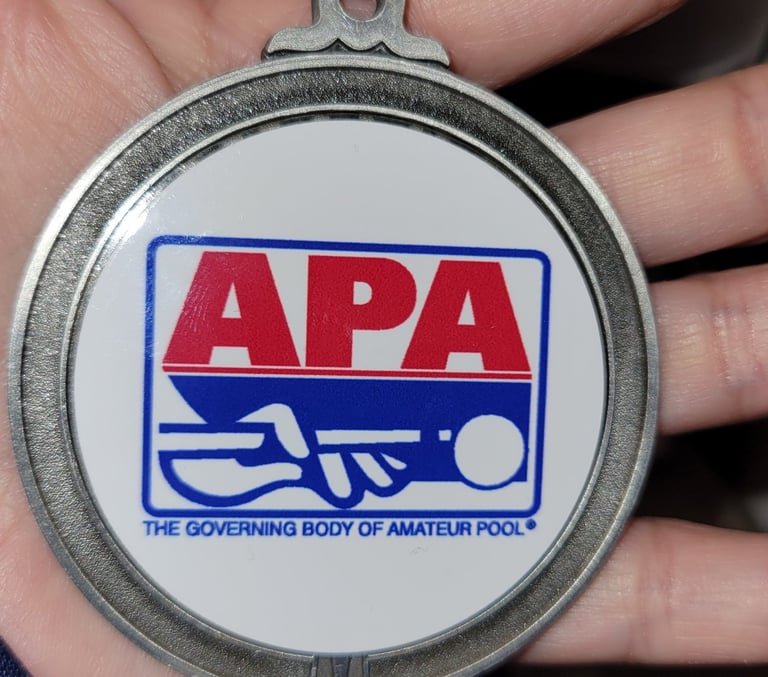Why Join An APA League?
A breakdown of the pros and cons of joining an APA League.
11/10/20252 min read
Joining an APA (American Poolplayers Association) league is primarily about having fun, meeting people, and improving your game in a friendly environment. The experience often feels more like a social gathering than a high-stakes competition. Here's a breakdown of the pros and cons, from one pool player to another.
The Pros: Why You'll Likely Enjoy It
It's Super Beginner-Friendly: The APA is designed for amateurs. Its unique handicapping system, called The Equalizer®, makes it possible for a total novice to genuinely compete with and even beat someone more experienced. You don't need to be a "shark" to play or win.
Great Social Scene: This is a big one. You'll meet all sorts of people from different backgrounds and likely make some lasting friendships, maybe even a "pool family". It's a fun night out every week, a perfect break from work or daily life.
A Real Chance at Vegas: Top teams and individuals can win expense-assisted trips to the national championships in Las Vegas. The chance to compete in the "World's Largest Pool Tournament" is a major draw and an amazing experience.
You Will Improve: The more you play, the better you get. You'll learn the rules, strategy, and mental game. Plus, experienced teammates are often willing to offer advice and coaching, which is invaluable.
Low Stakes, High Fun: The weekly fees are pretty reasonable, and the atmosphere is generally relaxed and focused on having a good time. "Slop" shots count, which some find more fun and less serious than professional rules.
Structure and Opportunity: There are divisions for 8-ball and 9-ball, singles and teams, offering variety and chances to play in different formats and tournaments throughout the year.
The Cons: What Might Grind Your Gears
The "Sandbagging" Issue: Because of the handicap system, there's always the potential for players to intentionally keep their skill levels (SL) down to get a better advantage in big tournaments. While many complaints are overblown, it can be frustrating to play against someone who seems deliberately under-rated.
Rules Can Be a Point of Contention: The APA has a simplified ruleset to avoid arguments. More serious, "pro" players sometimes look down on these rules (like counting "slop" shots) and the general lack of adherence to professional etiquette in some venues.
Punished for Getting Better?: Some argue the system implicitly discourages improvement because as your SL goes up, it can become harder to fit into a team's 23-point roster limit, or you might find yourself giving a huge spot to less-skilled players.
Long Nights and Waiting: With up to 8 people on a team and only 5 playing each night, you might end up sitting around for a while waiting for your turn, especially in smoky or crowded venues.
Payouts are Often Trophies, Not Cash: While the national events have big cash prizes, local league payouts are often just trophies and patches. If you're looking to consistently win serious cash locally, other leagues might be better.
League Operator Dependence: Your experience can heavily depend on how the local league operator manages things. A great operator can make it a blast, while a poor one can lead to drama and mismanagement.
Ultimately, the APA is a fantastic entry point into competitive pool and a great way to build a social life around a fun hobby. Just go in with the expectation of having fun and meeting people, and you won't be disappointed.


